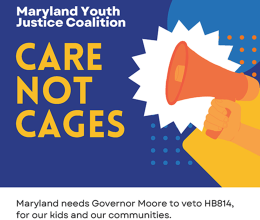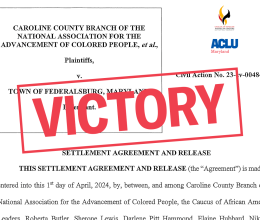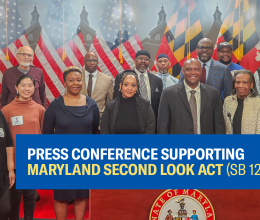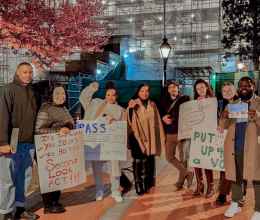
-- By David Rocah, Staff Attorney, ACLU of Maryland
Why is everyone in Baltimore ready to move forward with police reform except Donald Trump's Department of Justice?
Last year, in the wake of the killing of Freddie Gray, the Justice Department conducted an in-depth pattern-and-practice investigation of the Baltimore Police Department and released stunning findings documenting the brutal, longstanding, and unconstitutional mistreatment of city residents at the hands of police. Soon after, the Justice Department and the city of Baltimore negotiated a consent decree, whereby the city agreed to a federal court order requiring a detailed police reform process. Throughout, the BPD and the city's leadership have repeatedly stated that without immediate and strong reforms, the mostly Black and brown communities most brutalized by police have no reason to trust police - undermining public safety.
All the local players - and until recently the Justice Department - agreed that this consent decree is necessary to achieve systemic reform of policing. As part of the agreement, an independent monitor will be selected to supervise progress and keep the parties focused on the timely and effective implementation of the goals. Ideally, the monitor will also act as a bridge between the court, the city, the police department and the communities being policed in order to build trust and to ensure community input and involvement are an integral part of the process. The police chief himself has stated that, without the consent decree, the pace of reform will be slow.
But now, over the objections of the city and the Baltimore police, the Justice Department has requested a 90-day delay to "review and assess" whether the consent decree is consistent with a one-page memo issued by Jeff Sessions on March 31- days after meeting with the National Fraternal Order of Police. The memo instructs Justice Department officials, including those in the Civil Rights Division, that "local control and local accountability are necessary for effective local policing. It is not the responsibility of the federal government to manage non-federal law enforcement agencies."
The statement by Attorney General Sessions is simply wrong. It is difficult to imagine a more profound abdication of the Justice Department's legal responsibilities. While it is obviously not the department's role to conduct the day-to-day management of local police, there is a role for the federal government. In 1994, Congress gave the Justice Department the power to investigate and sue local police departments that engaged in a pattern or practice of conduct that deprives individuals of their constitutional rights. This responsibility is a critical tool for reforming the police departments that are the worst abusers of the communities they are supposed to protect.







